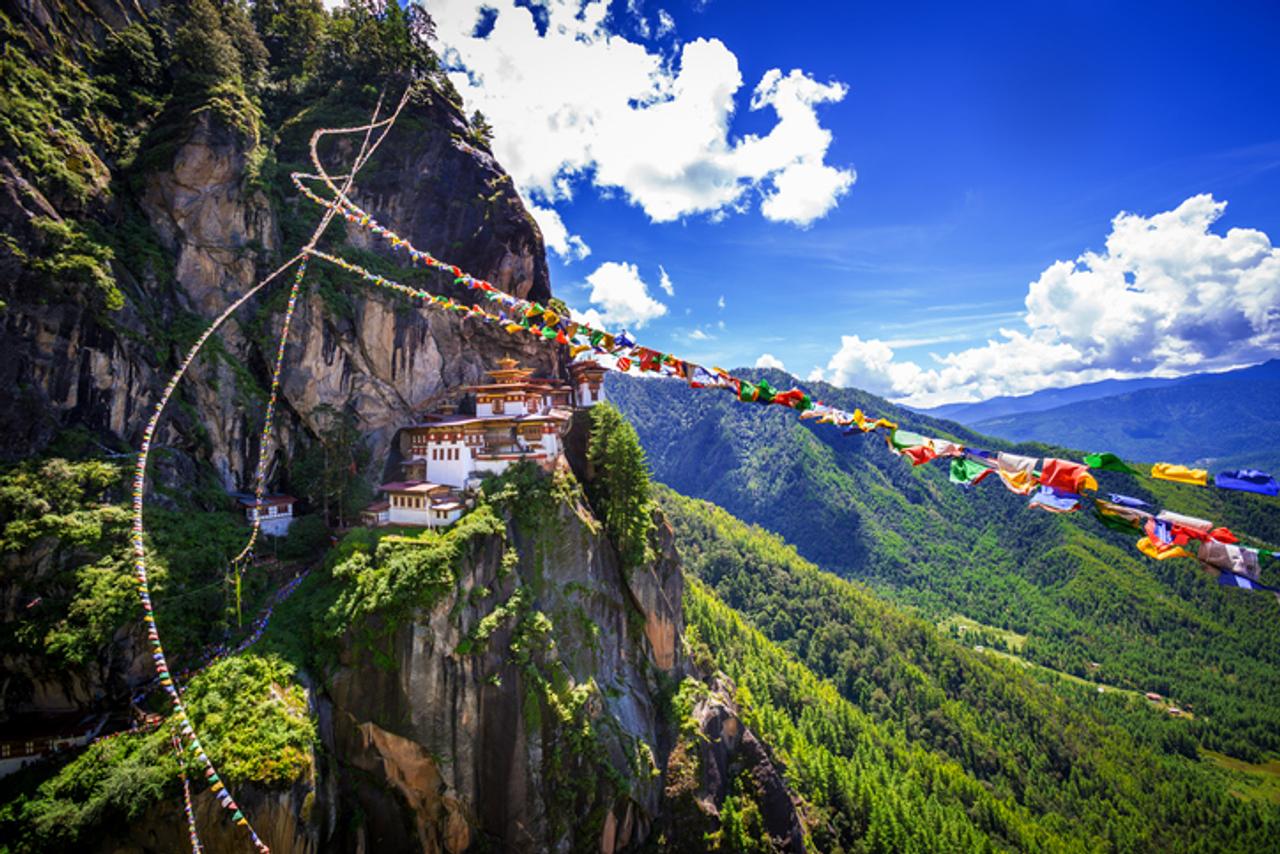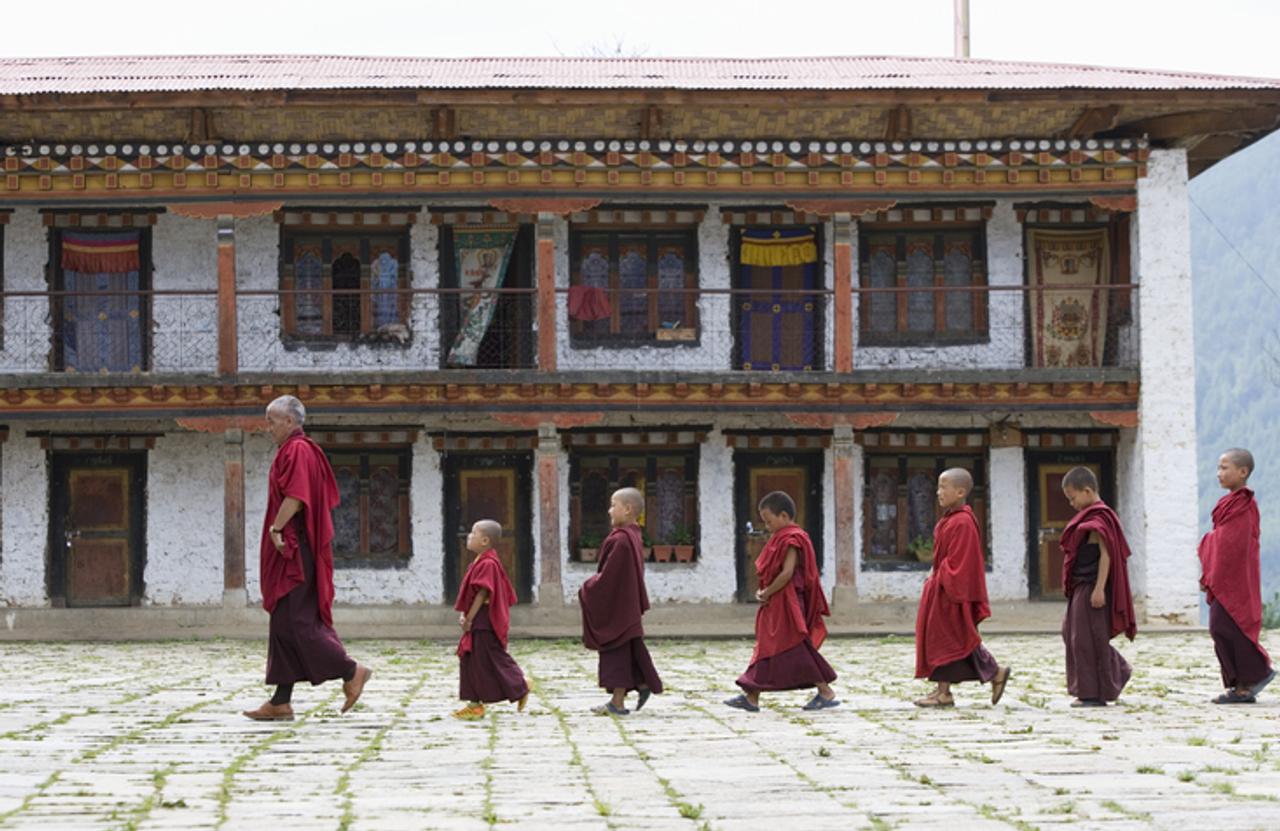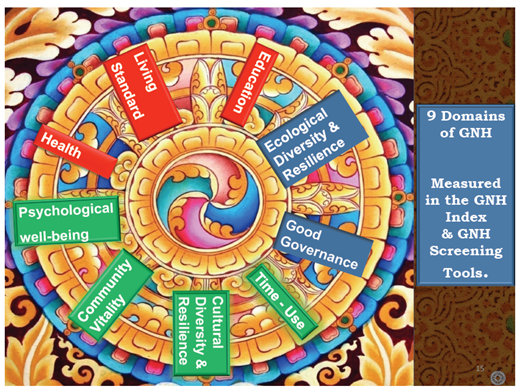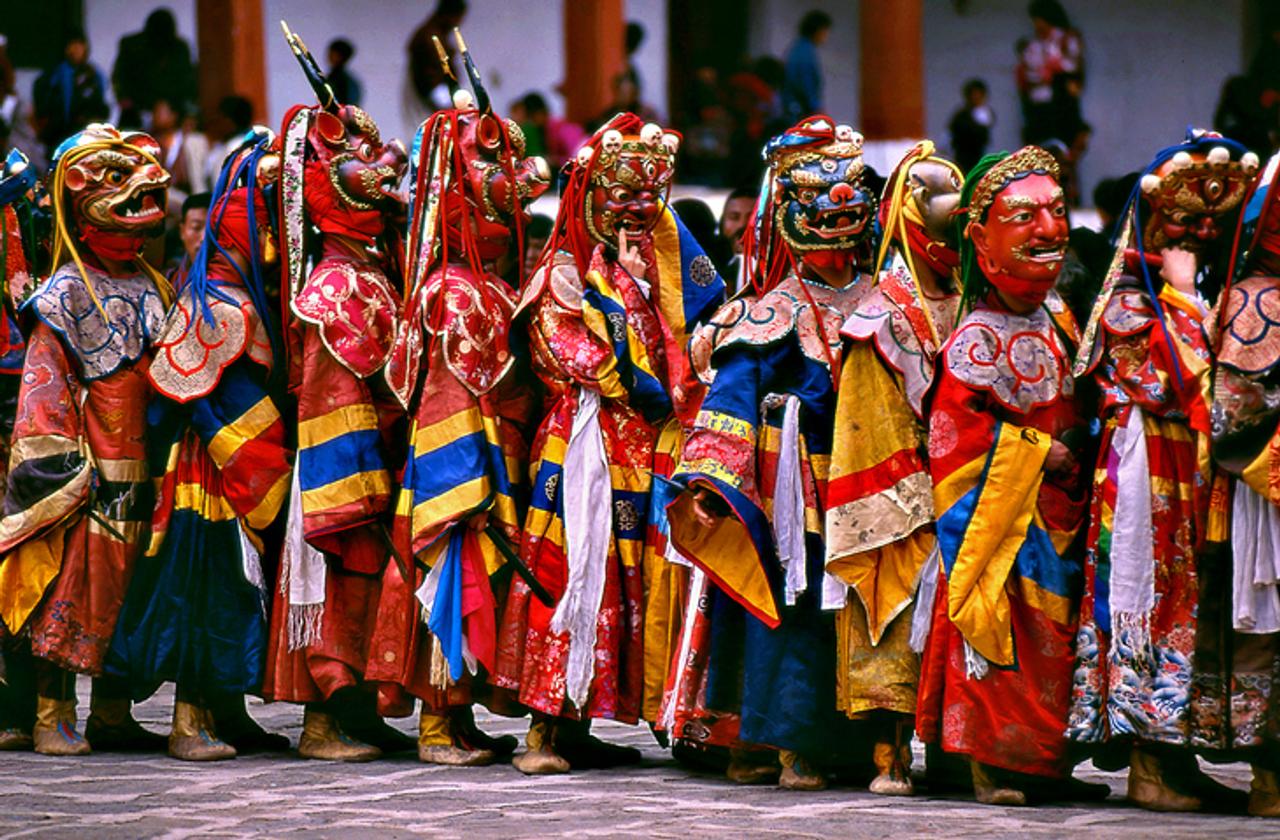On June 15, 2022, the Asahi Glass Foundation announced the 31st Blue Planet Prize winners. One of the winners, His Majesty the former King of Bhutan, Jigme Singye Wangchuk, proposed a new index for nation-building to replace GNP,Gross National Happiness (GNH)and threw a stone into the traditional view of the nation. We asked Professor Emeritus Kazuo Matsushita of Kyoto University, President of the GNH Society of Japan, who is familiar with Bhutan, about the thought of His Majesty Wangchuk, its background, and the ideal image of society.
Reality of beautiful Buddhist country
Kazuo Matsushita, President of the GNH Society of Japan, Professor Emeritus, Kyoto University
The Kingdom of Bhutan is a small country located at the foot of the Himalayas, established in 1907. The population is about 754,000, and the area is about the same as Kyushu in Japan, and is sandwiched between China to the north and India to the south. It is a Buddhist country where Tibetan Buddhism is the state religion, and people do not kill wild animals even though they are plagued by animal damage.
“Despite the recent increase in the number of automobiles, there are dogs lying in the middle of the road who seem completely unconcerned. Everyone is taking care of them, so the dogs are sleeping in complete peace of mind,” says Professor Matsushita, speaking of the peaceful state of Bhutan.
The Kingdom of Bhutan, whose state religion is Tibetan Buddhism, is kind to both people and creatures. “Stray dogs” in Japan are living peacefully as “community dogs” in Bhutan.
The people are gentle and kind, and the nature is beautiful. The constitution stipulates that “more than 60% of the country should be forested,” and in fact about 70% of the country is covered with forests.
It is also extremely clean in terms of energy. While countries around the world are striving to somehow achieve zero emissions, Bhutan is already the only country in the world that has achieved “negative emissions” exceeding “zero.”
In other words, the amount of CO2 absorbed by nature is greater than the amount of CO2 emitted by the people. This is thanks to the abundant forests, the terrain with large differences in elevation, and hydroelectric power generation that utilizes abundant water. Hydropower not only meets domestic power demand, but also exports clean power to India, helping its neighbors reduce their CO2 emissions.
I want the happiness of the people above all else

Forests occupy 70% of the land of the Kingdom of Bhutan
“His Majesty Jigme Singye Wangchuck, who became the fourth king at the young age of 17, was deeply troubled over how to govern the country after the sudden death of the third king.
For that reason, I have visited various parts of the country and have continued to seek the ideal image of the country through repeated dialogues with people. As a result, I arrived at the answer that what the people want is, after all, happiness.
The King himself assumed the chairmanship of the National Planning Commission and was tasked with formulating an economic plan, but at that time there were no basic statistics at all. Therefore, it is important to maintain and improve the satisfaction and happiness of the Bhutanese people by making the best use of Bhutan’s rich nature, traditional religions and culture, and beautiful connections between people, regardless of the economic growth rate. The concept of GNH (Gross National Happiness) emerged as a philosophy to the point of being the most important.
After that, when he was interviewed by a foreign reporter, His Majesty’s statement that “GNH is more important than GNP (Gross National Product)” spread throughout the world, and Bhutan, which was only a small Himalayan country, gained attention from all over the world. I started collecting them.” (Professor Matsushita).
There are two types of happy people: There are those who feel happy when they are successful and stand above others, and those who feel happy because the people around them are happy.
The values rooted in Bhutanese are the latter.If my community, including my family, is happy, I feel happy too.That’s why I cherish even the dogs that live in the area.
Improving the happiness of the people is the foundation of Bhutan’s nation-building. Of course, we need the minimum amount of wealth, but that doesn’t mean we cut down teak and sell it to earn foreign currency, for example.Bhutan’s way is to think of ways to increase the happiness of its people while protecting its beautiful forests.is.
“The thoughts that His Majesty Wangchuk put into GNH are the importance of family and community ties, harmony between people and nature, and the importance of history and culture that can be shared by the people.Happiness does not come from material things alone(Professor Matsushita)
Bhutan did not stop GNH as a mere slogan, but reformed and institutionalized the actual political and administrative structures to realize it.
‘GNH’ has elevated the status of the Kingdom of Bhutan

The Kingdom of Bhutan borders on Tibetan Buddhism.
First of all, His Majesty Wangchuck carried out the reform of the old system itself, in which he himself was the king.Abolish the absolute monarchy and shift to a constitutional monarchy, and keep the king as a symbol.On top of that, a new constitution was enacted, and the system itself was transformed into a government that was elected by the people.did.
The country’sArticle 9 of the Constitution stipulates that “the role of the government is to create the conditions under which GNH can be pursued.” GNH is a governing philosophy, a practical economic theory, and a practical policy objective.
“GNH has four pillars.Sustainable and equitable socio-economic development, environmental conservation, maintenance and promotion of culture and tradition, good governanceis. These are further divided into nine areas: standard of living, health, education, ecological health, culture, psychological well-being, work-life balance, community vitality, and good governance, and are incorporated into actual policies. (Professor Matsushita)
Bhutan conducts a census every two years to see if its policies are actually contributing to the well-being of its people. As a result, for example, in the 2005 census, 97% of the population said they were “happy.” The policy is drafted based on GNH, and the citizens feel happy as a result of its implementation.

9 areas of the GNH indicator (standard of living, health, education, ecological health, culture, psychological well-being, work-life balance, community vitality, good governance)
“Bhutan’s GNH has become the country’s brand image in the international community.Professor Matsushita points out that Japan is actively promoting GNH not only in Japan, but around the world.
For example, when the SDGs were discussed at the United Nations, he argued that the idea of GNH should be reflected, and at COP26 he appealed to the realization and maintenance of carbon negative, and was highly praised by the international community. In the future, plans have been announced to increase solar power generation, introduce electric vehicles, and promote the shift to EVs nationwide. As a GNH country, Bhutan is gaining international recognition.
“Happiness comes from harmony”

children of bhutan
Domestic policies will focus on education and health care, both of which are available free of charge to citizens.English-based education from elementary schoolSo many people speak English normally. Students can go to university for free, and can choose to work as a civil servant, teacher, or tourist guide after graduation.
Young people access the Internet on a regular basis and understand the trends of the world in real time. Thanks to the introduction of telework in Bhutan due to the coronavirus pandemic, some young people have started to live traditional lives in rural areas while doing cutting-edge jobs.
“However, it is not without its problems. One example is the low food self-sufficiency rate.Although 65% of the population are self-sufficient farmers, the self-sufficiency rate remains at around 60%, and rice, the staple food, is imported from India and Bangladesh.This is because the arable land in Japan is less than 8% because of the large difference in elevation.” (Professor Matsushita)
Most of its foreign currency income comes from electricity sales to India and tourism, and the rest depends on foreign aid. However, it has its own strategy for accepting aid, and instead of relying on major powers such as the United States and China, it accepts economic cooperation from Japan, Denmark, Switzerland, the Netherlands, and other countries. As a small country to begin with, there is a strong desire to be protected by the international community, especially against military pressure from the north.
AlsoA characteristic of Bhutan is that its emphasis on GNH does not mean that it ignores GDP.In fact, from 2005 to 2010, GDP achieved an average annual growth rate of 8.7%.is doing.
What should the international community learn from Bhutan?
“FirstPerspective of GNH as a bridge between economic development and culture, nature, tradition, etc.is. After that, while seeking economic growth, they will be prepared to be conscious of the level that suits them. Looking at the way of life of the people of Bhutan, we can feel their way of thinking, which recognizes diverse ways of life, restrains material satisfaction, and values harmony with nature above all else.
While incorporating cutting-edge knowledge and trends from around the world, such as the introduction of electric vehicles and the widespread use of the Internet, he lives a down-to-earth life by valuing harmony with his family and friends in his hometown. I am happy.” (Professor Matsushita)
Our attention is now turning to what we have sacrificed in the pursuit of economic progress. Harmony with people, harmony with nature—what we should learn from Bhutan is the realization of happiness through harmony.
Click here for more information about the Blue Planet Prize
Source: BusinessInsider
David Ortiz is an opinionated and well-versed author, known for his thought-provoking and persuasive writing on various matters. He currently works as a writer at 24 news breaker, where he shares his insight and perspective on today’s most pressing issues. David’s unique voice and writing style make his articles a must-read for those seeking a different point of view.

